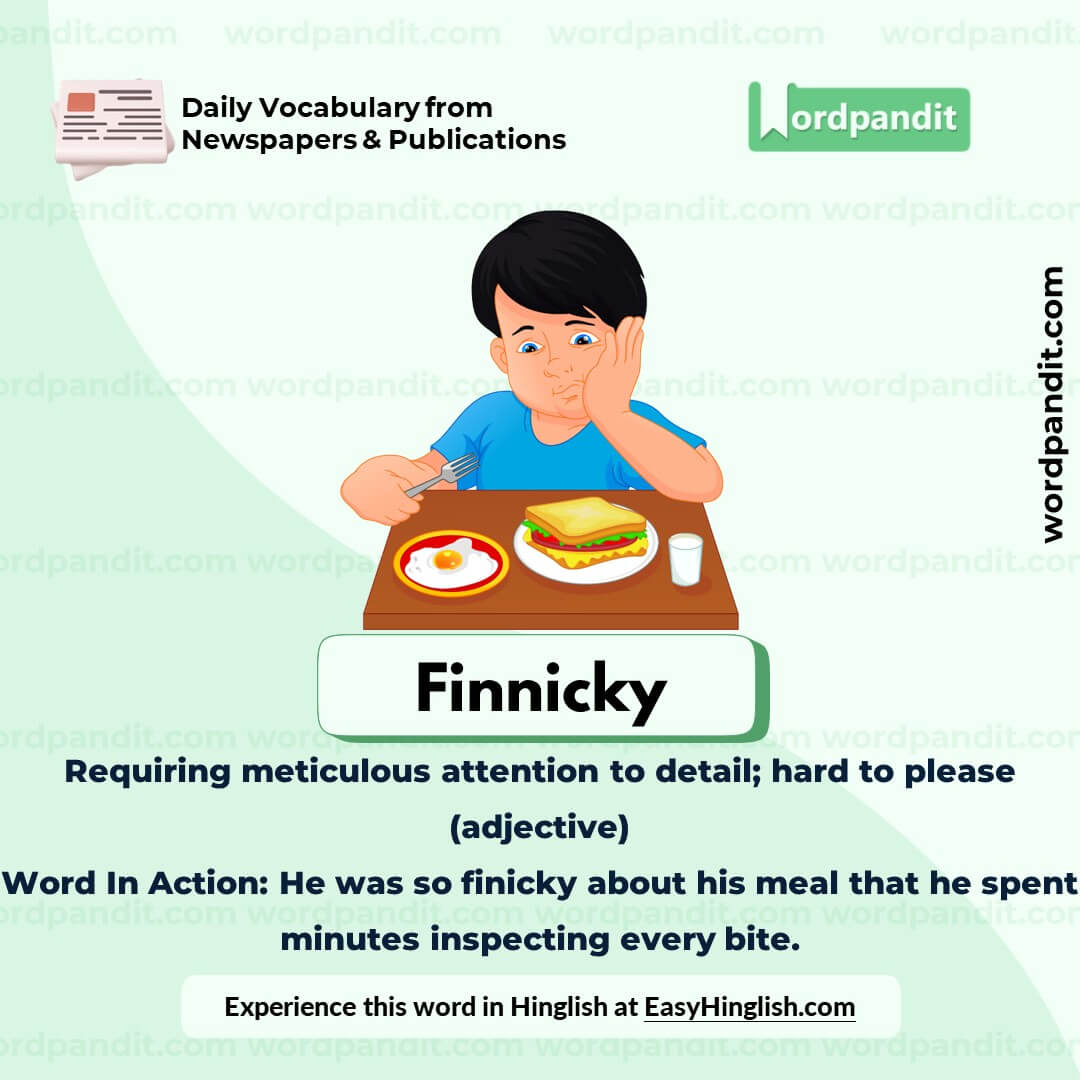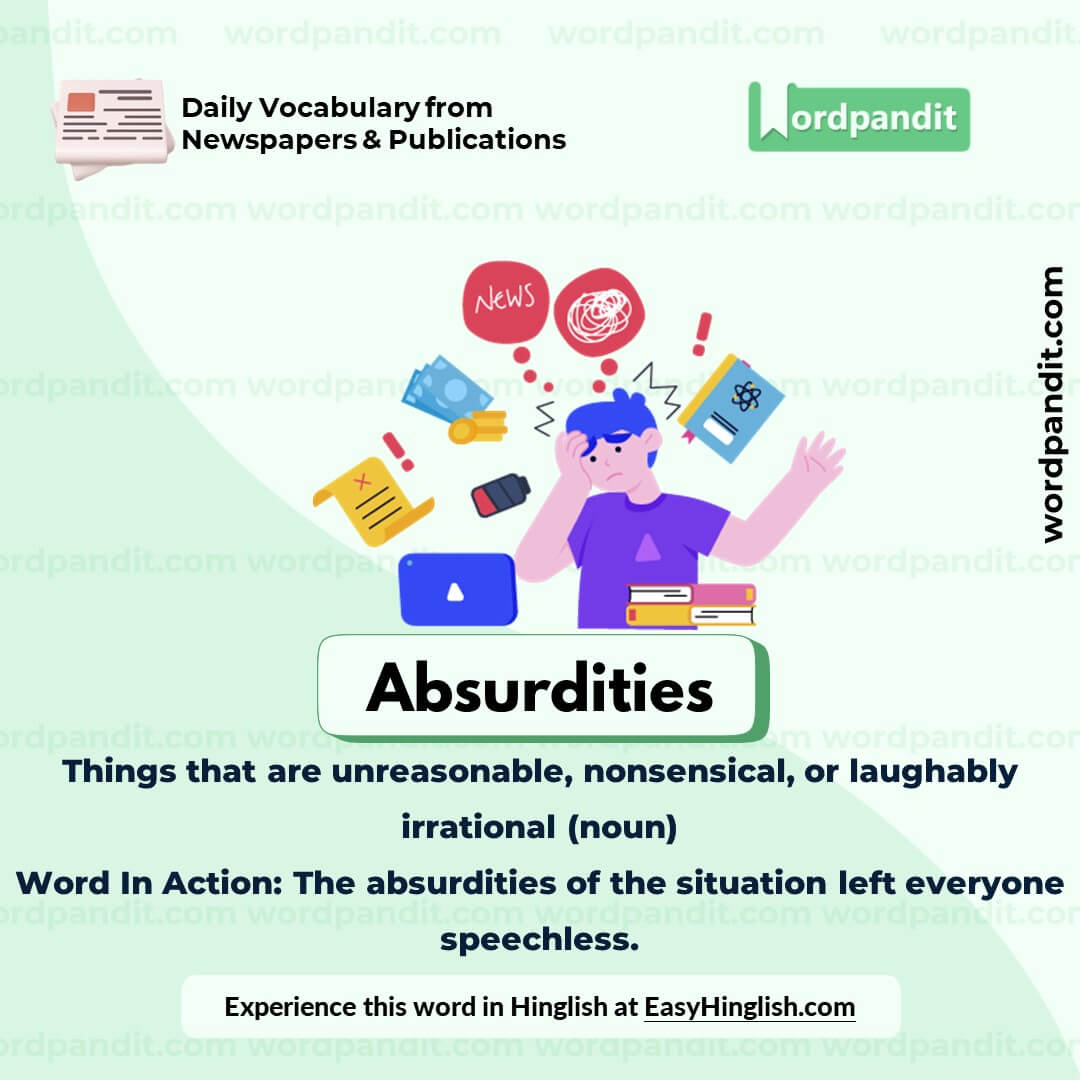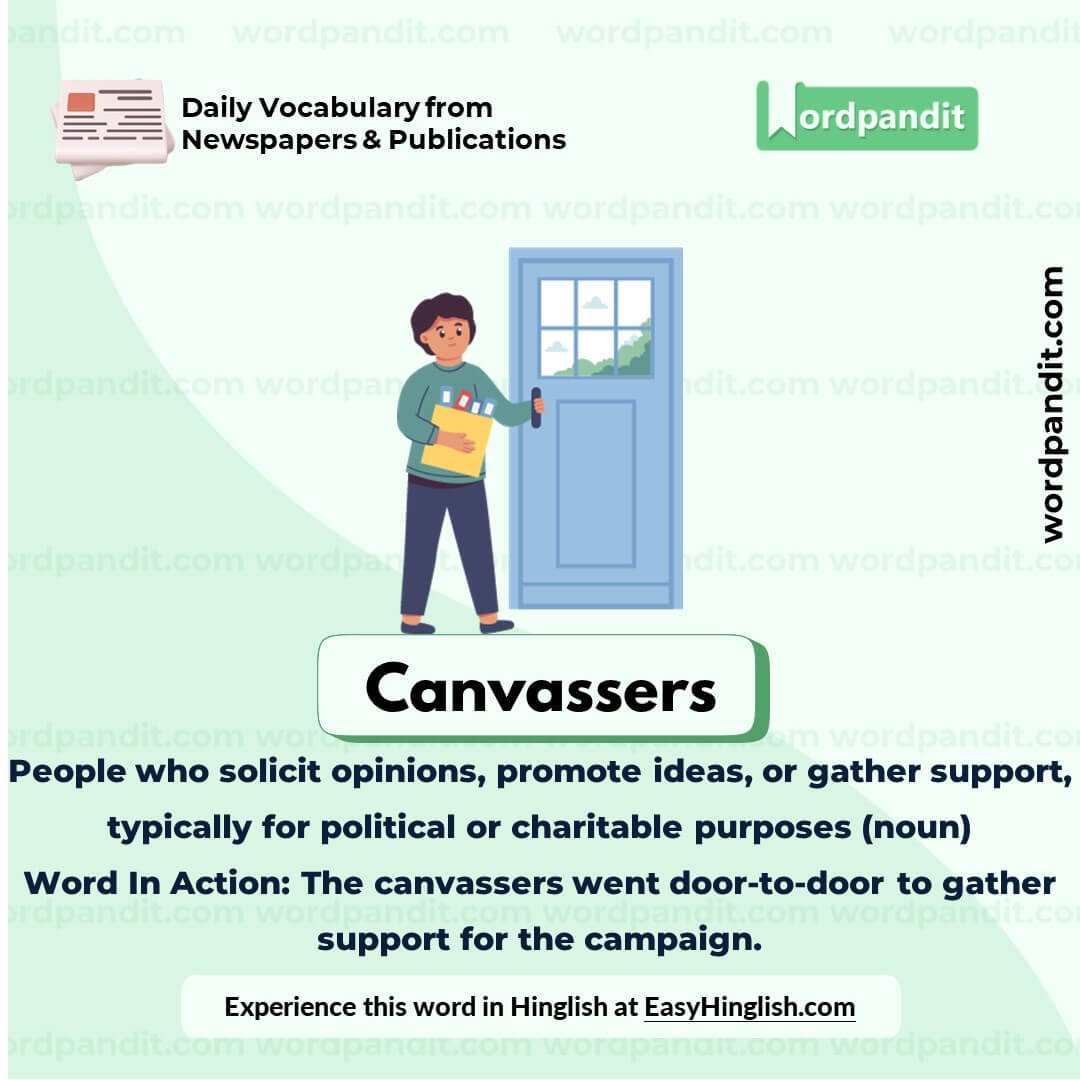Daily Vocabulary from International Newspapers and Publications
Expand Your Vocabulary with Wordpandit’s Global Vocabulary Hub
At Wordpandit, we are committed to helping you develop a truly global vocabulary by drawing from some of the most respected international publications. This section is designed to keep you ahead of the curve by introducing you to words that define global conversations and trends.
The Power of Global Sources
To help you think and communicate on a global scale, we curate vocabulary from renowned international sources, such as:
- The New York Times
- The Washington Post
- BBC
- The Guardian
- The Economist
- Scientific American
- Psychology Today
- And many more...
Stay Global, Stay Competitive
Our daily updates from international publications ensure you are consistently exposed to new words that reflect global news and developments, making sure your vocabulary is not only current but also globally relevant.
Enhance Your Global Perspective
Whether you’re preparing for international exams, aiming to excel in global business communication, or want to enhance your language skills for personal growth, Wordpandit offers the resources you need to thrive in a global context.
Effective Learning, Global Reach
Our learning methodology combines global examples, memory aids, and interactive activities, allowing you to internalize new words effectively and apply them in real-world scenarios.
Begin Your Global Vocabulary Journey Now!
Why Choose Wordpandit?
Practical Learning: Focus on words you'll actually encounter in real-world reading, enhancing your comprehension and communication skills.
Diverse Content: From current affairs to scientific breakthroughs, our varied sources expose you to vocabulary across multiple domains.
Effortless Integration: Make Wordpandit a part of your daily routine. Just a few minutes each day can significantly boost your lexicon over time.
Your Path to Vocabulary Mastery
- Visit our Daily Vocabulary section regularly
- Explore new words and their usage in context
- Practice incorporating these words into your own writing and speech
- Track your progress as your vocabulary expands
Start Your Journey Today
Embark on your vocabulary enhancement journey with Wordpandit. By consistently engaging with our daily posts, you'll build a robust vocabulary that serves you well in academic, professional, and personal contexts.
Remember, a word a day keeps linguistic limitations at bay. Make Wordpandit your daily companion in the quest for vocabulary excellence!
WORD-1: Finnicky
Context:
"Home repair on a space outpost is both more expensive and more finnicky, and at some point, entropy will win out." - Scientific American
Explanatory Paragraph:
The term finnicky describes something that requires a great deal of attention to detail and may be frustratingly difficult to handle or control. Often, "finnicky" situations or items are fussy and require careful precision, as even a small oversight can lead to complications.
Meaning: Requiring meticulous attention to detail; hard to please (adjective)
Pronunciation: FIN-ik-ee
Difficulty Level: ⭐⭐⭐ (Intermediate)
Etymology: Originates from the early 19th century, likely a variant of "finicky," which means overly particular.
Synonyms & Antonyms:
Synonyms: particular, fussy, meticulous, demanding, fastidious
Antonyms: easygoing, relaxed, careless, laid-back, indifferent
Usage Examples:
- The chef was finnicky about how each dish was presented to diners.
- Adjusting the settings on the antique clock was a finnicky process that required patience.
- He's finnicky about his coffee and refuses to drink it unless it's brewed to his exact specifications.
- Designing spacecraft involves many finnicky details to ensure every component works perfectly in space.
Cultural Reference:
In many sci-fi stories, machines in space require finnicky adjustments because even a tiny error can lead to malfunctions in a high-stakes environment.
Think About It:
Why do you think certain tasks or items become finnicky, requiring more precision than others?
Quick Activity:
Describe a task you've encountered that felt finnicky and explain why attention to detail was crucial.
Memory Tip:
Remember "finnicky" by associating it with "finicky" and "nitpicky" — both suggesting the need for detailed attention.
Real-World Application:
Using "finnicky" can help express frustration or detail-oriented care in tasks, whether it's about adjusting settings on tech devices or perfecting a recipe.
WORD-2: Absurdities
Context:
"He said radicals within the party had 'managed to alienate historic numbers of Latinos, Blacks, Asians, and Jews from the Democratic Party with absurdities like ‘Defund the Police’ or ‘From the River to the Sea’ or ‘Latinx’.'" - BBC
Explanatory Paragraph:
Absurdities refer to ideas, statements, or situations that are ridiculous, illogical, or out of touch with reality. These often provoke surprise or disbelief due to their irrational or extreme nature, leading people to question their sense or validity.
Meaning: Things that are unreasonable, nonsensical, or laughably irrational (noun)
Pronunciation: ab-SUR-di-teez
Difficulty Level: ⭐⭐ (Intermediate)
Etymology: Originates from the Latin word absurdus, meaning "out of tune, senseless, or irrational."
Synonyms & Antonyms:
Synonyms: nonsense, ridiculousness, foolishness, irrationality, preposterousness
Antonyms: logic, reason, sense, rationality, practicality
Usage Examples:
- The absurdities of the story made it hard to take seriously, as the events seemed so unlikely.
- Critics argued that the proposal was filled with absurdities that made it impossible to implement.
- Laughing at the absurdities of life can help us cope with stress and uncertainty.
- Many found the film’s plot full of absurdities, but that only added to its charm.
Cultural Reference:
In literature, absurdities are often embraced in the genre of absurdism, where writers like Samuel Beckett explore the illogical aspects of human existence and society.
Think About It:
Why might people find certain ideas or phrases to be absurd, and how does this perception impact how they react to them?
Quick Activity:
List two things in society you find absurd and explain why you think they don’t make sense.
Memory Tip:
Link "absurdities" to "absurd" or "silly," reminding you that absurdities are things that seem completely irrational or nonsensical.
Real-World Application:
Using "absurdities" can help describe and critique situations or statements that defy common sense or reason, often in discussions or debates about policies or social norms.
WORD-3: Assassinate
Context:
"Pennsylvania has had some vendor turnover, too, but the state has become a personal focus for Mr. Musk, who has not only flooded it with door knockers but also appeared at rallies for Mr. Trump in Harrisburg, Lancaster, the Philadelphia suburbs and Butler, the site of a July attempt to assassinate Mr. Trump." - The New York Times
Explanatory Paragraph:
The term assassinate refers to the act of deliberately killing a prominent or public figure, often for political or ideological reasons. It usually implies a premeditated, secretive attack meant to impact a larger cause or issue.
Meaning: To murder a well-known person or leader, typically for political or ideological motives (verb)
Pronunciation: uh-SAS-uh-nayt
Difficulty Level: ⭐⭐⭐⭐ (Advanced)
Etymology: From the Medieval Latin assassinare, related to the Arabic hashshashin, a historical group known for politically motivated killings.
Synonyms & Antonyms:
Synonyms: murder, kill, execute, eliminate, slay
Antonyms: protect, preserve, save
Usage Examples:
- The historical figure was assassinated due to his political influence and beliefs.
- Secret agents were sent to prevent an attempt to assassinate the diplomat.
- The movie depicts the dangerous life of a spy tasked with stopping assassinations.
- Many leaders have heightened security to prevent assassination attempts.
Cultural Reference:
Notable historical assassinations, such as those of President Abraham Lincoln and civil rights leader Martin Luther King Jr., have had profound impacts on society and are studied as pivotal moments in history.
Think About It:
Why do you think assassinations of public figures often lead to social or political changes?
Quick Activity:
Think of a historical event where an assassination changed the course of history. Describe the impact it had on society.
Memory Tip:
To remember "assassinate," think of "assassin" — someone hired or motivated to kill a public figure.
Real-World Application:
The word "assassinate" is often used in news and historical discussions about the serious consequences of political violence, especially when it involves leaders or prominent figures.
WORD-4: Canvassers
Context:
"Relying on paid canvassers presents a risk." - The New York Times
Explanatory Paragraph:
Canvassers are individuals who go door-to-door or contact people in public spaces to gather information, promote a cause, or encourage specific actions, like voting. They often play a critical role in political campaigns and advocacy by speaking directly with the public to raise awareness or persuade people on specific issues.
Meaning: People who solicit opinions, promote ideas, or gather support, typically for political or charitable purposes (noun)
Pronunciation: KAN-vuh-sers
Difficulty Level: ⭐⭐ (Intermediate)
Etymology: Derived from the Old French canvasser, meaning "to examine or discuss critically."
Synonyms & Antonyms:
Synonyms: campaigners, solicitors, recruiters, advocates
Antonyms: abstainers, bystanders, nonparticipants
Usage Examples:
- During election season, canvassers visited neighborhoods to encourage voter turnout.
- The organization hired canvassers to raise awareness about environmental issues.
- Canvassers often receive training to handle difficult conversations with the public.
- Some residents were frustrated by the frequent visits from political canvassers.
Cultural Reference:
Political canvassing has roots in ancient democratic societies, but it became widely organized in the United States as political parties developed systematic methods to engage voters directly.
Think About It:
How effective do you think canvassers are in influencing people’s decisions, and why might their direct approach work or fail?
Quick Activity:
Imagine you are a canvasser for a cause you care about. Write a short pitch you might use when talking to people.
Memory Tip:
Think of "canvassers" as people who “cover a canvas” of neighborhoods or areas, reaching many people one-by-one.
Real-World Application:
Canvassers are essential in politics and advocacy, as they provide a personal connection with the public, often making complex issues more accessible through conversation.
WORD-5: Befuddled
Context:
"But multiple people involved in the super PAC confessed they were befuddled as to why the petition was being offered." - The New York Times
Explanatory Paragraph:
The word befuddled describes a state of confusion or bewilderment where things seem unclear or difficult to understand. When someone feels befuddled, they might struggle to make sense of what’s happening or feel mentally foggy, as if they’ve been thrown off balance by unexpected or perplexing information.
Meaning: Confused or perplexed, often in a way that makes it difficult to think clearly (adjective)
Pronunciation: bih-FUHD-uhld
Difficulty Level: ⭐⭐ (Intermediate)
Etymology: From the prefix be- (to make or cause) and fuddle, an old word meaning “to confuse or muddle,” often linked to the state of drunkenness.
Synonyms & Antonyms:
Synonyms: confused, puzzled, baffled, perplexed, dazed
Antonyms: clear-headed, certain, composed, unconfused
Usage Examples:
- She was befuddled by the sudden change in the meeting’s agenda.
- The complex instructions left him completely befuddled.
- After the presentation, the audience appeared befuddled by the complicated data.
- Trying to solve the riddle only seemed to befuddle him further.
Cultural Reference:
In literature, characters are often befuddled when they encounter mysterious or magical events that defy explanation, adding intrigue to the story.
Think About It:
Why might people feel befuddled when encountering something unfamiliar or unexpected? How can they overcome this feeling?
Quick Activity:
Think of a time you felt befuddled. Describe what caused the confusion and how you tried to make sense of the situation.
Memory Tip:
Link "befuddled" with "fuddled" or “muddled” to remember it’s a state of mental confusion.
Real-World Application:
“Befuddled” can describe someone’s reaction to complex issues, technical instructions, or unexpected situations, often used to express genuine surprise or lack of understanding.
















